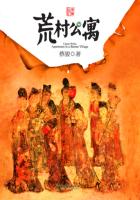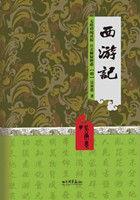Thus, in this provincial soil where other powers have lost their roots, not only has he kept his, but he has extended them and much farther; he has grown beyond all measure and now the whole ecclesiastical territory belongs to him. Formerly, on this territory, many portions of it, and quite large ones, were enclosures set apart, reserves that an immemorial wall prevented him from entering. It was not he who, in a great majority of cases, conferred livings and offices; it was not he who, in more than one-half of them, appointed to vacant curacies. At Besan?on,[25] among 1500 benefices and livings, he once conferred less than 100 of them, while his metropolitan chapter appointed as many curés as himself; at Arras, he appointed only 47 curés and his chapter 66; at Saint-Omer, among the collators of curacies he ranked only third, after the abbey of Saint-Martin and after the chapter of the cathedral. At Troyes, he could dispose only of 197 curacies out of 372; at Boulogne, out of 180, he had only 80, and this again because the chapter voluntarily abandoned to him 16. Naturally, the eyes of all candidates turned towards the collator; and, among the highest and most lucrative places, those which gave the least trouble and afforded the most satisfaction, all sinecures, ranks, simple benefices and large urban curacies, probendaries and canonicates, most of the offices, titles, and incomes that might tempt human ambition, were in the hands, not of the bishop, but of the king or of the Pope, of an abbot or prior, of an abbess, or of a certain university,[26] of this or that cathedral or college-body, of a lay seignior, of a patentee, or of an indultaire, and often of the titulary himself. Thus, the hold of the bishop on his clercs was feeble;he did not hold them through the hope of a favor. And, on the other hand, he had still less hold on them, no hold at all, through fear of losing favor. They might displease him almost with impunity; his faculty for punishment was much more restricted than his means of recompense. His subordinates could find shelter and refuge against his displeasure, and even against his hostility. In the first place, and as a principle, a titulary, whether ecclesiastic or secular, owned his office and hence was irremovable; they themselves, plain vicar-curates, the humble desservans[27] of a rural parish, had acquired this privilege through the declarations of 1726 and 1731.[28]
Moreover, in case of interdiction, suspension or of censure, a titulary could always recur to the courts against episcopal judgment and any other, against all encroachment on spiritual or temporal prerogatives, or on those which were useful or honorary belonging to his charge.
These courts were of two kinds, one ecclesiastical and the other secular, and in each an appeal could be made from a lower to a higher court, from the diocesan official to the metropolitan official, and from the présidial to the parliament, with a complete judicial staff, judge, assessors, public ministry, prosecutors, advocates and clerks, restricted to the observing of all judicial formalities, authentic papers, citations of witnesses and challenges of testimony, interrogatories and pleadings, allegation of canons, laws and precedents, presence of the defendant, opposing arguments, delays in procedure, publicity and scandal. Before the slow march and inconveniences of such a trial, the bishop often avoided giving judgment, and all the more because his verdicts, even when confirmed by the ecclesiastical court, might be warded off or rendered ineffective by the lay tribunal; for, from the former to the latter, there was an appeal under writ of error, and the latter, a jealous rival of the former, was ill-disposed towards the sacerdotal authorities;[29] besides, in the latter case, far more than in the former, the bishop found confronting him not merely the more or less legal right of his own party, but again the allies and patrons of his party, corporations and individuals who, according to an accepted usage, interfered through their solicitations with the judges and openly placed their credit at the service of their protégé. With so many spokes in the wheels, the working of an administrative machine was difficult; to give it effective motion, it required the steady pressure, the constant starting, the watchful and persistent efforts of a laborious, energetic, and callous hand, while, under the ancient régime, the delicate white hands of a gentleman-prelate were ill-adapted to this rude business; they were too nicely washed, too soft.
To manage personally and on the spot a provincial, complicated and rusty machine, always creaking and groaning, to give one's self up to it, to urge and adjust twenty local wheels, to put up with knocks and splashes, to become a business man, that is to say a hard worker -nothing was less desirable for a grand seignior of that epoch. In the Church as in the State, he made the most of his rank; he collected and enjoyed its fruits, that is to say money, honors and gratifications, and, among these gratifications, the principal one, leisure; hence, he abandoned every special duty, the daily manipulation of men and things, the practical direction, all effective government, to his ecclesiastical or lay intendants, to subordinates whom he scarcely looked after and who, at his own house, on his own domain, replaced him as fixed residents. The bishop, in his own diocese, left the administration in the hands of his canons and grand-vicars; "the official decided without his meddling."[30] The machine thus worked alone and by itself, with very few shocks, in the old rut established by routine; he helped it along only by the influence he exercised at Paris and Versailles, by recommendations to the ministers in reality, he was merely the remote and worldly representative of his ecclesiastical principality at court and in the drawing-room.[31]















